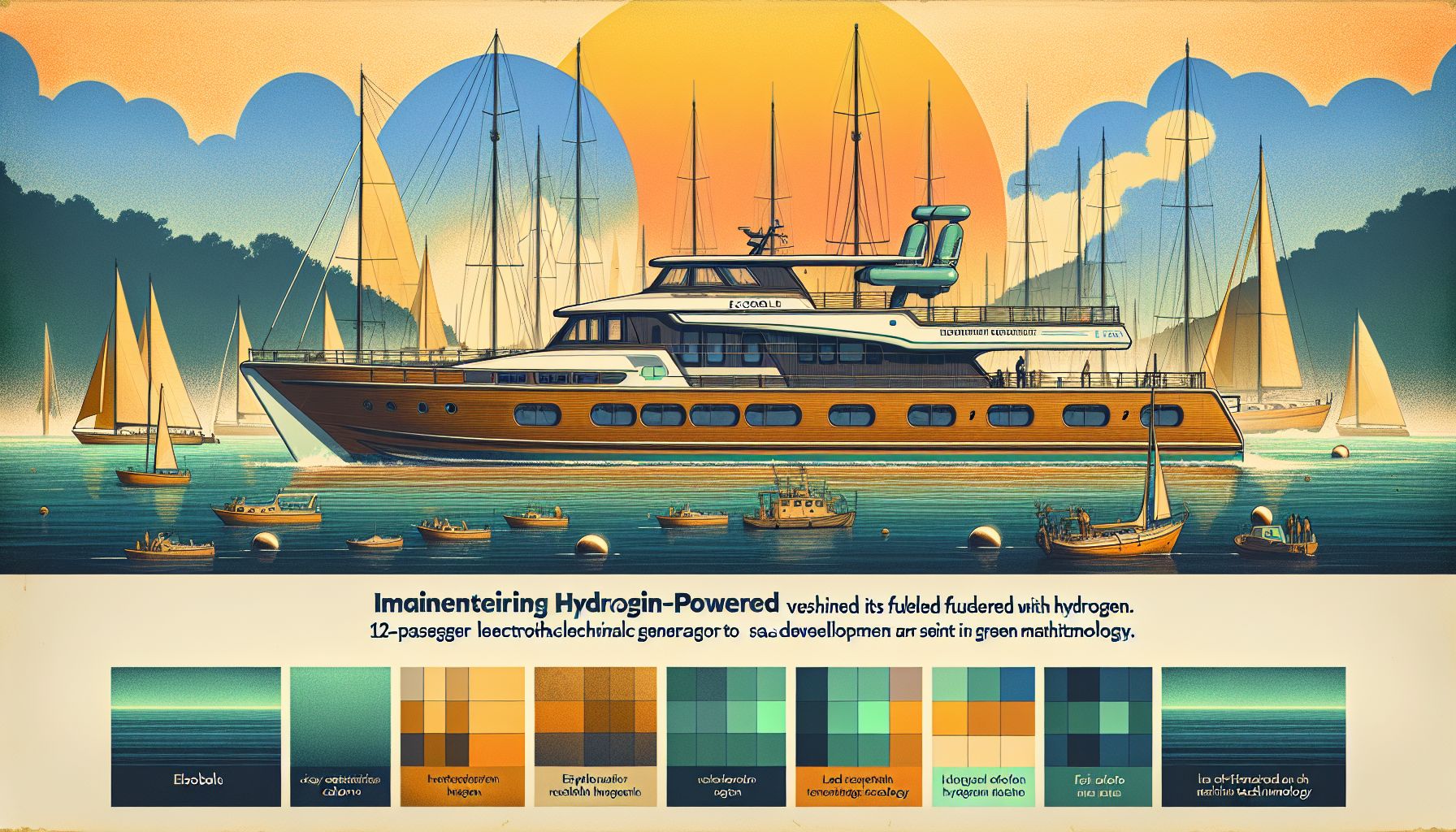Russia's First Hydrogen-Powered Ship 'Ecobalt' Set for October Tests

Moscow, Wednesday, 9 October 2024.
Russia’s pioneering hydrogen-powered vessel, Ecobalt, is poised for sea trials this October. This 12-passenger recreational boat features an innovative electrochemical generator fueled by hydrogen, marking a significant leap in Russia’s green maritime technology and import substitution efforts.
A Technological Leap in Maritime Innovation
The Ecobalt represents a remarkable advancement in green technology, integrating hydrogen fuel cells to propel maritime innovation. Developed by the Krylov State Scientific Center (KSRC), a prominent entity in Russian naval technology, this vessel serves as a testament to Russia’s commitment to reducing its carbon footprint and advancing sustainable energy solutions. The KSRC, based in Moscow, has collaborated with the Gorky Zelenodolsk Shipyard, where the vessel was constructed, to bring this pioneering project to fruition[1][2].
Strategic Objectives and Collaborative Efforts
The strategic aim behind Ecobalt is to replace imported technologies with domestically produced alternatives, thus enhancing Russia’s technological independence. The KSRC has spearheaded the development of the ship’s electrochemical hydrogen generator, a first for Russia. The design was executed by Baltsudoproekt Central Design Bureau, a part of the KSRC, while the construction was undertaken by Ak Bars, showcasing a concerted effort to keep the development and manufacturing within Russian boundaries[3][4].
Anticipating a New Era in Maritime Transport
As the Ecobalt embarks on its sea trials this month, it holds the promise of a cleaner, more sustainable future for maritime transport. The ship’s capacity to carry 12 passengers makes it suitable for recreational use, yet its implications for commercial shipping are significant. Oleg Savchenko, the CEO of KSRC, has emphasized the importance of this project in demonstrating the viability of hydrogen technology in marine applications to potential customers. This could pave the way for broader adoption of hydrogen-powered vessels, potentially revolutionizing the industry[5][6].
Future Prospects and Global Implications
The successful testing and operational deployment of the Ecobalt could position Russia as a leader in hydrogen power for maritime applications. This aligns with global efforts to combat climate change by reducing greenhouse gas emissions. As countries worldwide seek to transition to cleaner energy sources, Ecobalt’s development is a critical step in showcasing the potential for hydrogen technology to reduce maritime pollution and promote sustainable development[7][8].

